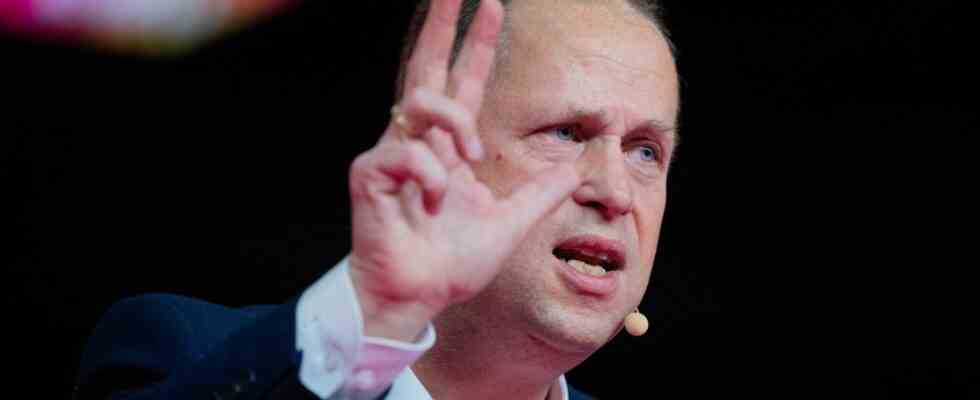The encounter in the dust of a slum was more than six years ago. But she shaped Joachim Stamp. The FDP politician was traveling in North Africa, in a Moroccan slum camp he met a refugee from Guinea whose destination was Europe. The 19-year-old said he was going to get on a rubber dinghy: “I’ll either make it to Europe or I’ll drown in the Mediterranean,” he said. “I’ve never forgotten that moment,” says Stamp. “I had no alternative to offer the boy.”
The experience describes the paradox of German migration policy, he thinks. After all, Germany urgently needs workers like the young West African. “The boat and an asylum application are the wrong way,” says Stamp. Asylum procedures are lengthy and hopeless in the case of Morocco, for example. “Anyone who wants to work here shouldn’t end up in the asylum system, but in a job,” says Stamp. That’s why he wants “a job center for the German labor market right in Morocco.”
So far, not much has been heard of the traffic light’s “repatriation offensive”.
Implementing the unrealistic-sounding idea is part of his new job. Stamp is the newly appointed special representative of the federal government – and should conclude further migration agreements, as Interior Minister Nancy Faeser said in the world on Sunday said. So he will travel through the countries of origin and promote the fact that they take back rejected refugees. In return, he can offer visa facilitation and technology transfer – and also job exchanges.
Stamp’s post is part of the “repatriation offensive” announced in the coalition agreement – about which not much has been heard so far. The traffic light preferred to concentrate on the friendly side of migration policy, creating a regulation for long-term tolerated residents with the opportunity to stay in Germany, for example. Not enough deportation, even FDP General Secretary Bijan Djir-Sarai found. In the dispute over easier naturalizations, the topic boiled up.
Stamp’s office should be created quickly now. Faeser brought the FDP man to the Ministry of the Interior, he had five years of experience as family and integration minister in the old black-yellow NRW coalition – and showed there that he can also deport. No other federal state takes so many rejected asylum seekers out of the country, Stamp boasted at the time. To do this, the liberal went to the limits of what was permitted by the rule of law and sometimes even beyond: in 2018, Stamp left the Tunisian Sami A., an Islamist preacher and alleged ex-bodyguard of Osama bin Laden, behind the back of his lawyer and even the asylum authorities fly out Some things went “unfortunately”, he admitted, but he denied a breach of the law. Administrative judges, however, felt “grossly unlawful” tricked.
Stamp was always a do-gooder and a tough dog. The latter was also a signal to Bavaria, to the CSU and the then Interior Minister Horst Seehofer, whose rejection of a modern immigration law Stamp despaired of. Stamp’s idea of breaking Seehofer’s dogmatic resistance through a “migration summit” with concentrated participation from the federal, state, city and district levels ultimately failed.
But the cooperation he engineered between NRW and Ghana is a success. NRW has opened a return center for Ghanaians deported from Germany in the West African country and at the same time helps to train young people – for the domestic or German job market. Stamp wants more of these kinds of projects, but knows that they involve tough, detailed work and can be bitterly disappointing. And that only a small proportion of those who are obliged to leave the country can be deported in this way. He wants to be honest about it, he says.

